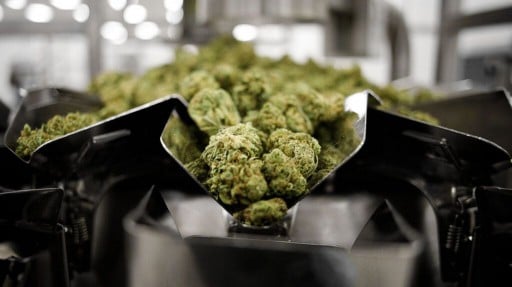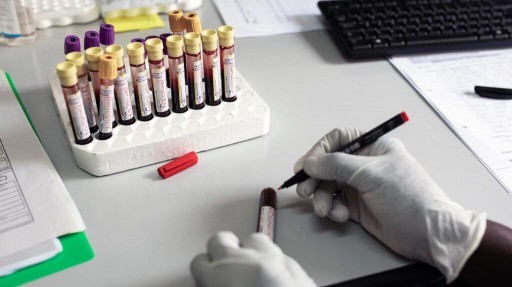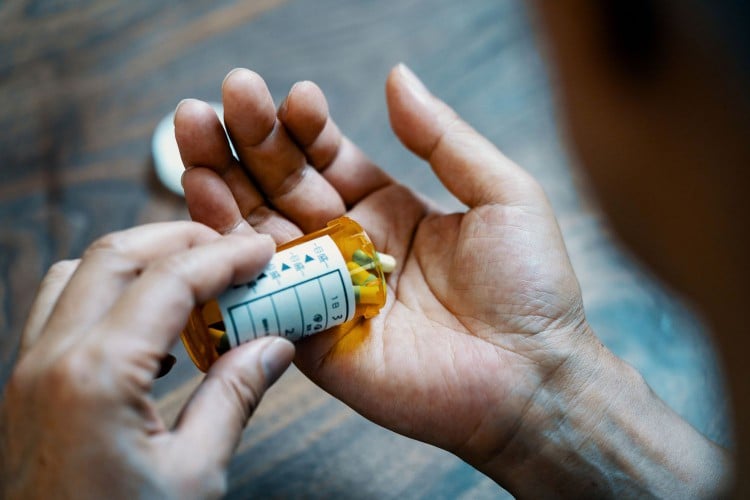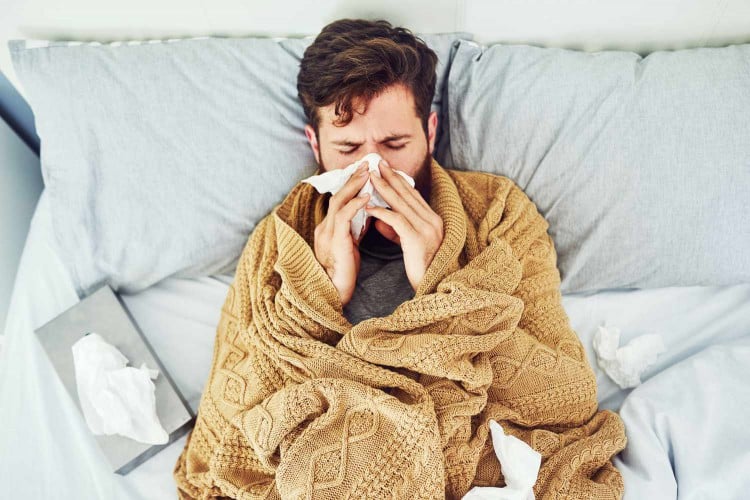- Online, people are recommending that others rinse their hair with rice water to improve hair health.
- Rice bran mineral extract has showed promise in promoting hair health and even growth, but that is different than the cloudy rice water people are making at home.
- Rice water contains starch, which can be drying and damaging for some hair types, especially curls.
Rice water has become a trendy way to improve hair health, but despite its online clout, the simple hair growth hack may not be all that helpful, experts said.
To assist with hair growth and repair any damage, TikTokers swear by rinsing their hair in the starchy, cloudy water that’s drained after soaking or cleaning rice.
And the internet at large is intrigued by the concept—videos tagged with “rice water” have garnered a whopping 986 million views on TikTok.
With the wide interest in rice water for hair health, applications and methods tend to vary person-to-person. Sometimes people let the water sit and ferment, often with added citrus peels to mask the odor. Some apply the concoction every day, while others reach for it monthly.
In general, people promoting the hair care method claim it can transform hair into silky, healthy locks. But dermatologists aren’t so sure.
Rice is full of nutrients, said Deirdre Hooper, MD, a board-certified dermatologist at Audubon Dermatology. However, that doesn’t automatically mean it can improve people’s hair.
“The problem is that we’re making this leap that something that is meant to be consumed can be applied to your hair—which is dead cells—and that it can make all these changes,” she told Health.
Here's what experts had to say about rice water and its effect on the hair, plus other ways people can keep their hair looking healthy and strong.
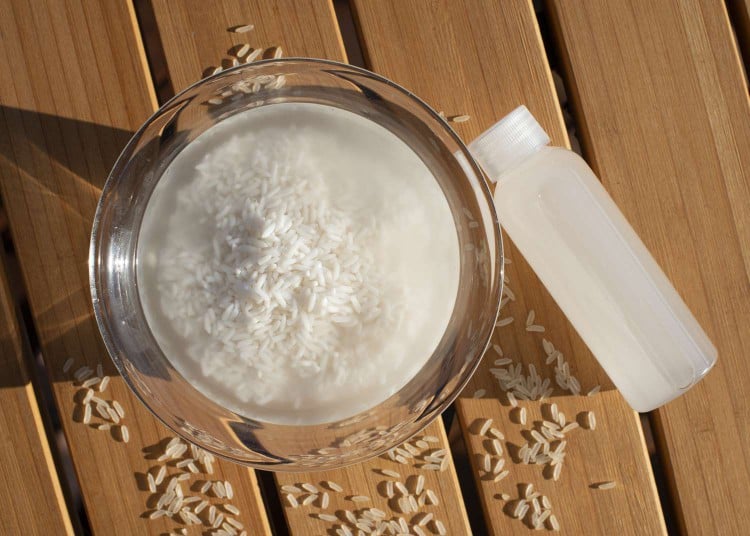
vasare/Getty Images
Not Enough Research to Support Rice Water for Hair
The practice of soaking rice in water and using it as a hair treatment is not new.
Rice water has been used by people living in a number of Asian countries for thousands of years. Many social media posts credit the Yao women of China, who use fermented rice water on their incredibly long hair, with the technique. It’s also been tied to Japanese women around the year 1000, who combed their hair with Yu-Su-Ru, or the water from washed rice.
With its long history and current devoted fanbase, there are many people who have anecdotal evidence that rice water has improved the health of their hair.
Rice itself contains nutrients such as magnesium, iron, folic acid, thiamin, and niacin. And rice water contains phenols, which may help in treating alopecia areata.
However, experts say there’s not yet enough evidence to prove that rice water does improve hair health. In fact, for some people, it might even make things worse.
Rinsing the hair in rice water could damage it, especially for people with coiled hair that tends to break more easily, said Rhonda Farah, MD, an associate professor of dermatology at the University of Minnesota Medical School.
Rice water contains a lot of starch, which can pull moisture from the hair, causing it to become brittle, Farah told Health.
“[Rice water] can actually be harmful because it isn’t actually formulated for your scalp. You don’t get the same delivery to the hair follicle or the hair shaft,” Farah explained.
The treatment “is something inexpensive and low risk, I just think it’s also probably low gain,” Hooper added. “There’s no evidence that this is going to do anything.”
Rice Water’s Benefits May Be Attributable to Other Factors
Rice water may not be able to improve someone’s hair, experts agreed. In fact, the treatment may be unfairly getting credit for other lifestyle changes or products that can boost hair health.
Diet is one potential explanation.
People who have traditionally used rice water rinses on their hair are also likely eating healthier diets that are low in processed foods, such as those seen in Blue Zones, Hooper said. The silky hair seen on the Yao women or others may come from their diets or another aspect of their lifestyles, rather than from fermented rice water rinses.
It’s also possible that people have confused rice water rinses with rice bran mineral extract. This ingredient is found in certain hair care products and can help promote hair growth.
A review published in 2022 included 10 studies on the topic. Researchers concluded that rice bran mineral extract may lengthen the time the hair follicle is in the anagen phase, which is when follicle growth occurs.
But rice bran mineral extract included in hair products is not the same as rice water made at home, Farah cautioned. In fact, rice bran is removed in the milling process—by the time rice gets to the grocery store, this part is removed.
So while rice bran mineral extract looks promising for hair health, rice water made from processed rice doesn’t hold merit based on current scientific evidence, said Farah.
Rely on Hair Care Advice from Healthcare Professionals
Like other health trends and advice that become popular online, people should proceed with caution before joining in on the rice water trend, Hooper and Farah agreed.
“Just because you like that person’s hair, that does not mean the method they use is going to work on your hair,” said Farah. “Each type of hair is so different, it’s really hard to apply one thing to everyone.”
These kinds of natural products or at-home remedies don’t always work, Hooper added, which can be discouraging, particularly for people looking to prevent or slow hair loss. People may be wasting their time on rice water treatments instead of moving forward with a solution from a healthcare professional, she said.
“Because hair, skin, and nails are so accessible to every person, I think some people forget that these are organs,” said Hooper. “While you can manipulate them, there is a reason for scientific evidence and there are many factors for why a person’s hair is acting a certain way.”
If someone does want to try to improve their hair health or boost hair growth, certain lifestyle changes such as reducing stress, treating dandruff, and avoiding hair heat tools may be able to help. People can also reach for rice bran mineral extract products or similar products, so long as they’re formulated to be safe for hair, Farah added.
And not all social media advice is bad, she said. People can follow board-certified dermatologists or the American Academy of Dermatology on Instagram and TikTok to ensure they are getting vetted information from experts.
But if someone is concerned about the health of their hair, or they’re experiencing more serious issues such as hair loss, Farah recommends they see a dermatologist to get to the root of the issue and prescribe a treatment.
“There has to be a word of caution for what you’re seeing on the internet and extrapolating as true,” said Hooper. “It’s a bit of a disservice to make people believe that if they could just live their lives perfectly, they won’t have any issues.”

